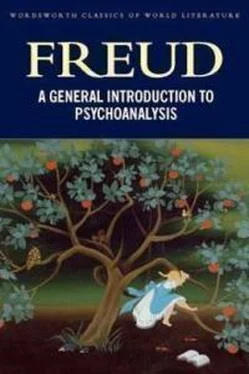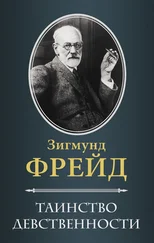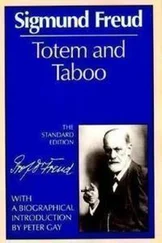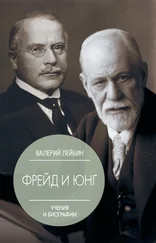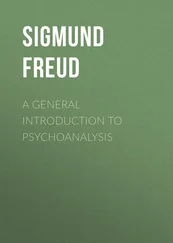Such things, and many more of a similar character, are shown by the direct observation of children and the consideration of their vivid childish recollections, which are not influenced by the analysis. You will conclude, among other things, that the position of a child in the sequence of his brothers and sisters is of utmost importance for the entire course of his later life, a factor which should be considered in every biography. In the face of these explanations that are found with so little effort, you will hardly recall without smiling the scientific explanations for the prohibition of incest. What inventions! By living together from early childhood the sexual attraction must have been diverted from these members of the family who are of opposite sex, or a biological tendency against in–breeding finds its psychic equivalent in an innate dread of incest! In this no account is taken of the fact that there would be no need of so unrelenting a prohibition by law and morality if there were any natural reliable guards against the temptation of incest. Just the opposite is true. The first choice of an object among human beings is regularly an incestuous one, in the man directed toward the mother and sister, and the most stringent laws are necessary to prevent this persisting infantile tendency from becoming active. Among the primitive races the prohibitions against incest are much more stringent than ours, and recently Th. Reik showed in a brilliant paper that the puberty–rites of the savages, which represent a rebirth, have the significance of loosing the incestuous bonds of the boy to his mother, and of establishing the reconciliation with the father.
Mythology teaches that incest, apparently so abhorred by men, is permitted to the gods without further thought, and you may learn from ancient history that incestuous marriage with his sister was holy prescript for the person of the ruler (among the ancient Pharaohs and the Incas of Peru). We have here a privilege denied the common herd.
Incest with his mother is one of the sins of Oedipus, patricide the other. It might also be mentioned that these are the two great sins which the first social–religious institution of mankind, totemism, abhors. Let us turn from the direct observation of the child to analytic investigation of the adult neurotic. What does analysis yield to the further knowledge of the Oedipus–complex? This is easily told. It shows the patient up in the light of the myth; it shows that each of these neurotics was himself an Oedipus or, what amounts to the same thing, became a Hamlet in the reaction to the complex. To be sure, the analytic representation of the Oedipus–complex enlarges upon and is a coarser edition of the infantile sketch. The hatred of the father, the death–wish with regard to him, are no longer timidly suggested, the affection for the mother recognizes the goal of possessing her for a wife. Dare we really accredit these horrible and extreme feelings to those tender childhood years, or does analysis deceive us by bringing in some new element? It is not difficult to discover this. Whenever an account of past events is given, be it written even by a historian, we must take into account the fact that inadvertently something has been interpolated from the present and from intervening times into the past; so that the entire picture is falsified. In the case of the neurotic it is questionable whether this interpolation is entirely unintentional or not; we shall later come to learn its motives and must justify the fact of "imagining back" into the remote past. We also easily discover that hatred of the father is fortified by numerous motives which originate in later times and circumstances, since the sexual wishes for the mother are cast in forms which are necessarily foreign to the child. But it would be a vain endeavor to explain the whole of the Oedipus–complex by "imagining back," and as related to later times. The infantile nucleus and more or less of what has been added to it continues to exist and may be verified by the direct observation of the child.
The clinical fact which we meet with in penetrating the form of the Oedipus–complex as established by analysis, is of the greatest practical importance. We learn that at the period of puberty, when the sexual instinct first asserts its demands in full strength, the old incestuous and familiar objects are again taken up and seized anew by the libido. The infant's choice of an object was feeble, but it nevertheless set the direction for the choice of an object in puberty. At that time very intense emotional experiences are brought into play and directed towards the Oedipus–complex, or utilized in the reaction to it. However, since their presuppositions have become unsupportable, they must in large part remain outside of consciousness. From this time on the human individual must devote himself to the great task of freeing himself from his parents, and only after he has freed himself can he cease to be a child, and become a member of the social community. The task confronting the son consists of freeing himself from his libidinous wishes towards his mother and utilizing them in the quest for a really foreign object for his love. He must also effect a reconciliation with his father, if he has stayed hostile to him, or if in the reaction to his infantile opposition he has become subject to his domination, he must now free himself from this pressure. These tasks are set for every man; it is noteworthy how seldom their solution is ideally achieved, i.e., how seldom the solution is psychologically as well as socially correct. Neurotics, however, find no solution whatever; the son remains during his whole life subject to the authority of his father, and is not able to transfer his libido to a foreign sexual object. Barring the difference in the specific relation, the same fate may befall the daughter. In this sense the Oedipus–complex is correctly designated as the nucleus of the neurosis.
You can imagine how rapidly I am reviewing a great number of conditions which are associated with the Oedipus–complex, of practical as well as of theoretical importance. I cannot enter upon their variations or possible inversions. Of its less immediate relations I only wish to indicate the influence which the Oedipus–complex has been found to exert on literary production. In a valuable book, Otto Rank has shown that the dramatists of all times have taken their materials principally from the Oedipus–and incest–complexes, with their variations and disguises. Moreover, we will not forget to mention that the two guilty wishes of Oedipus were recognized long before the time of psychoanalysis as the true representatives of the unrestrained life of impulses. Among the writings of the encyclopedist Diderot we find a famous dialogue, The Nephew of Ramau , which no less a person than Goethe has translated into German. In this you may read the remarkable sentence: " If the little savage were left to himself he would preserve all his imbecility, he would unite the passions of a man of thirty to the unreasonableness of the child in the cradle; he would twist his father's neck and bed with his mother ."
There is also one other thing of which I must needs speak. The mother–wife of Oedipus shall not have reminded us of the dream in vain. Do you still remember the result of our dream analysis, that the wishes out of which the dream is constructed so frequently are of a perverse, incestuous nature, or disclose an enmity toward near and beloved relatives the existence of which had never been suspected? At the time we did not trace the sources of these evil impulses. Now you may see them for yourselves. They represent the disposition made in early infancy of the libidinous energy, with the objects, long since given up in conscious life, to which it had once clung, which are now shown at night to be still present and in a certain sense capable of activity. But since all people have such perverse, incestuous and murderous dreams, and not the neurotics alone, we may conclude that even those who are normal have passed through the same evolutionary development, through the perversions and the direction of the libidio toward the objects of the Oedipus–complex. This, then, is the way of normal development, upon which the neurotics merely enlarge. They show in cruder form what dream analysis exposes in the healthy dreamer as well. Accordingly here is one of the motives which led us to deal with the study of the dream before we considered the neurotic symptom.
Читать дальше
